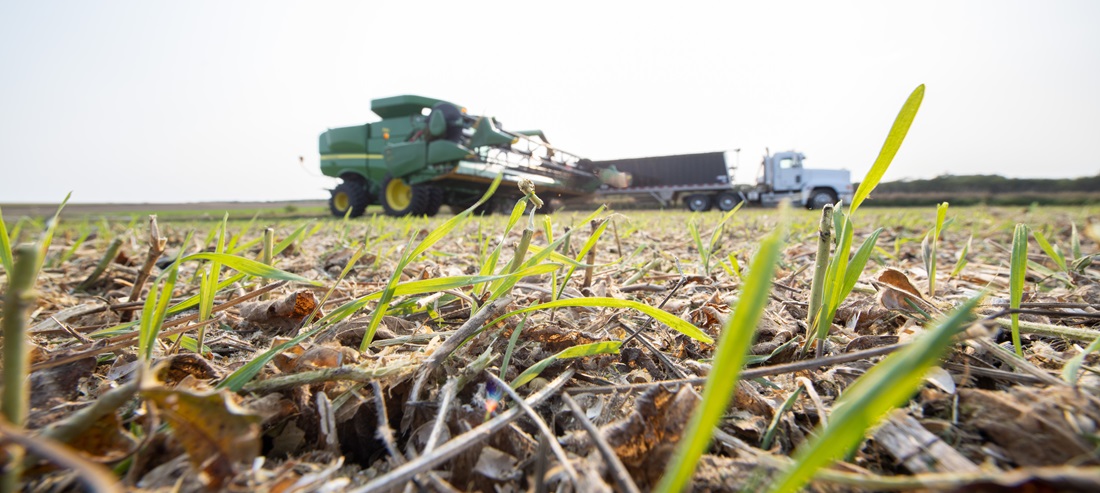
Cargill doubles earnings in Brazil to record high
Apr, 30, 2024 Posted by Sylvia SchandertWeek 202418
“In 2023, we [Brazil] saw no competition. Instead, we had a queue of customers wanting to buy Brazilian products, the only ones available [in the international market].” That is how Paulo Sousa, the CEO of Cargill in Brazil, described the scenario of the soybean market last year, which led the company to post record-high results.
Net earnings posted by the largest agribusiness company in Brazil doubled to reach a record of R$2.5 billion in 2023. Net operating income increased slightly and totaled R$126.4 billion, also a record-high figure, as a result of sales of 51 million tonnes, almost 25% higher than in 2022.
The figure includes all goods originated, processed, and sold by Cargill, but soybeans and corn represent the largest volumes. The strong performance was driven by the increase in sales of soybeans and corn, according to Mr. Sousa.
The record soybean harvest in Brazil in 2022/23, of 154.6 million tonnes, is one of the reasons behind last year’s result. Not the only one. Higher prices for grains in the international market, given the uncertainties caused by the Russia-Ukraine war and the failure of the soybean harvest in Argentina, completed the scenario and led Cargill to post record soybean crushing margins, as an annual average.
While Argentina experienced a “climate tragedy,” with a crop failure of more than 50%, “Brazil benefited,” according to Mr. Sousa. The climate favored the record harvest and led Brazil to occupy the space left by Argentina. The neighboring country offers grains worldwide at the same time as Brazilian farmers.
In Brazil, farmers, who were already happy with international prices, became even happier with a large, unexpected volume of soy and corn per hectare as a result of a climate that helped crops, according to Mr. Sousa. In this environment, Brazil became more competitive in the global market and sold soy even to Argentina, the country’s main competitor in soybean meal and oil.
The executive does not make projections for this year but says he does not expect Cargill to repeat such performance, as the fundamentals have changed, especially with the normalization of the harvest in Argentina. Nonetheless, he doesn’t expect the Brazilian harvest to disappoint.
In this scenario, Cargill’s current crushing margins are half of what they were a year earlier. In addition to the increased supply, which caused prices to fall in the international market, China, the main importer of Brazilian soybeans, is now buying “from hand to mouth,” according to Mr. Sousa. That is a very different scenario from last year’s when China advanced purchases to ensure availability.
Investment represented another unprecedented figure for Cargill in Brazil in 2023, with R$2.6 billion, 116% more than a year earlier.
According to the CEO, most funds were allocated to acquire soybean processors, biodiesel plants, and warehouses from Granol in August 2023. There were also investments in efficiency improvements in existing factories, ports, and warehouses, as well as in the animal nutrition segment.
With the new crushing units, Cargill is now among the largest biodiesel producers in Brazil, the executive says. For 2024, the company plans investments above the average of the last five years, although below 2023. Part of the investments will focus on increasing capacity and improving the efficiency of the factories acquired from Granol, Mr. Sousa says.
But not only. The company will likely invest in infrastructure and logistics, including a port in Porto Velho (Rondônia) expected to start transporting grain.
Such investments reveal the company’s optimism in Brazilian agriculture, but Paulo Sousa sees challenges for the sector. One of them is the environmental issue. Although he considers “a lot of things have improved […] and the Lula administration has been doing an excellent job combating illegal deforestation,” the CEO adds, “The environment remains as the biggest challenge of Brazilian agriculture globally, regarding acceptance and real risk, even with our brand.”
Regarding the European Union’s anti-deforestation act against the import of products from deforested areas, he says Brazil will have to adapt to maintain its markets. However, Mr. Sousa says the rule creates a problem for the EU. The law “will lead to a repositioning of the flow of products, often uneconomical and inefficient, creating more [carbon] emissions to meet a set goal,” he points out.
The executive also says he sees the company’s suppliers highly concerned about property rights in Brazil, due to the risk of land invasion, which “has become a problem again.”
Another challenge, in his opinion, is credit for the sector. As the available funds—both public and private—are insufficient, agriculture depends on the financial market, which has gained importance in recent years in credit supply. Mr. Sousa, who has criticized the surge of court-supervised reorganizations in the sector, warns that “if the incoming capital faces challenges, the tap will run dry.”
Source: Valor Internacional
-
Grains
Oct, 21, 2024
0
Brazil: soy yields and crushing remain stable; exports show growth
-
Other Cargo
Dec, 30, 2020
0
Footwear exports projected to grow 21% in 2021
-
Ports and Terminals
Jan, 20, 2025
0
APS Presents Plans for the Port of Itajaí in Meeting with the Port Community
-
Other Cargo
Aug, 09, 2022
0
Brazilian footwear industry grows 64.8% year-to-date



